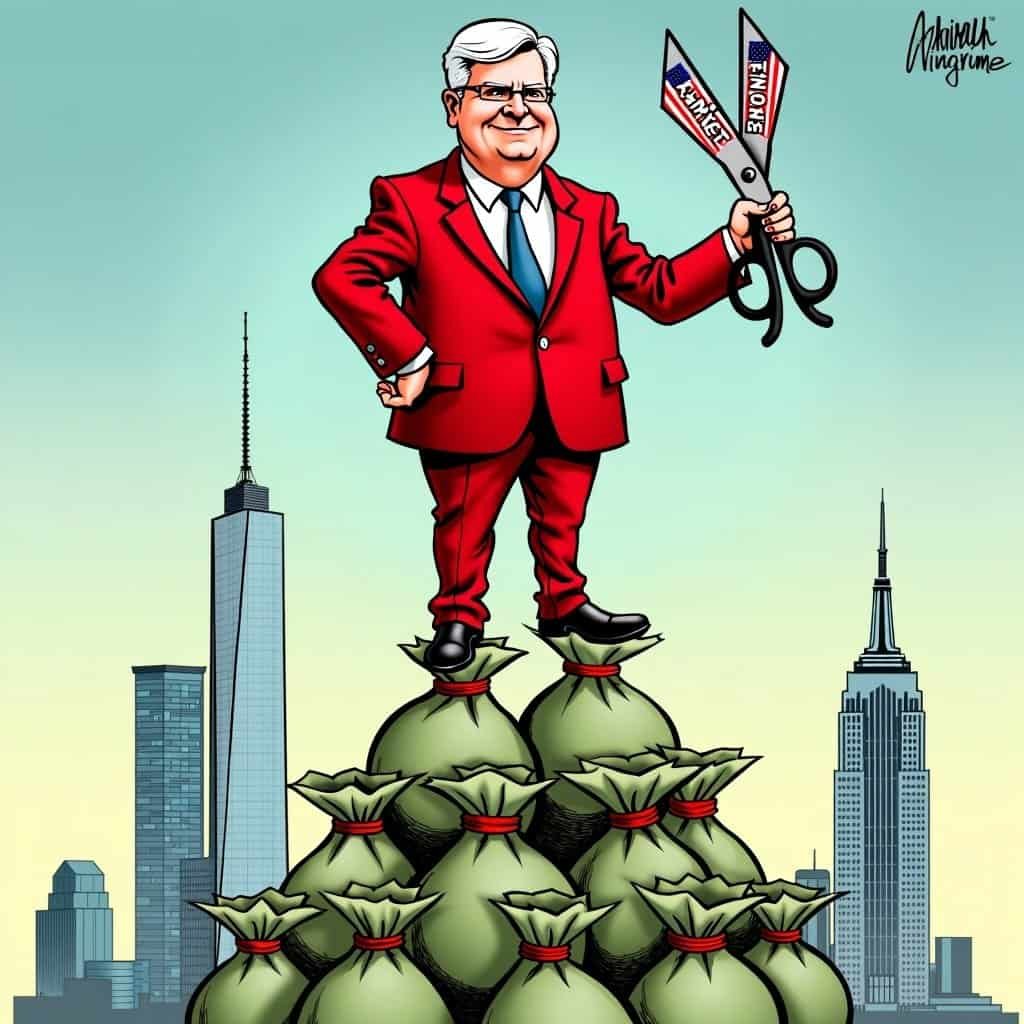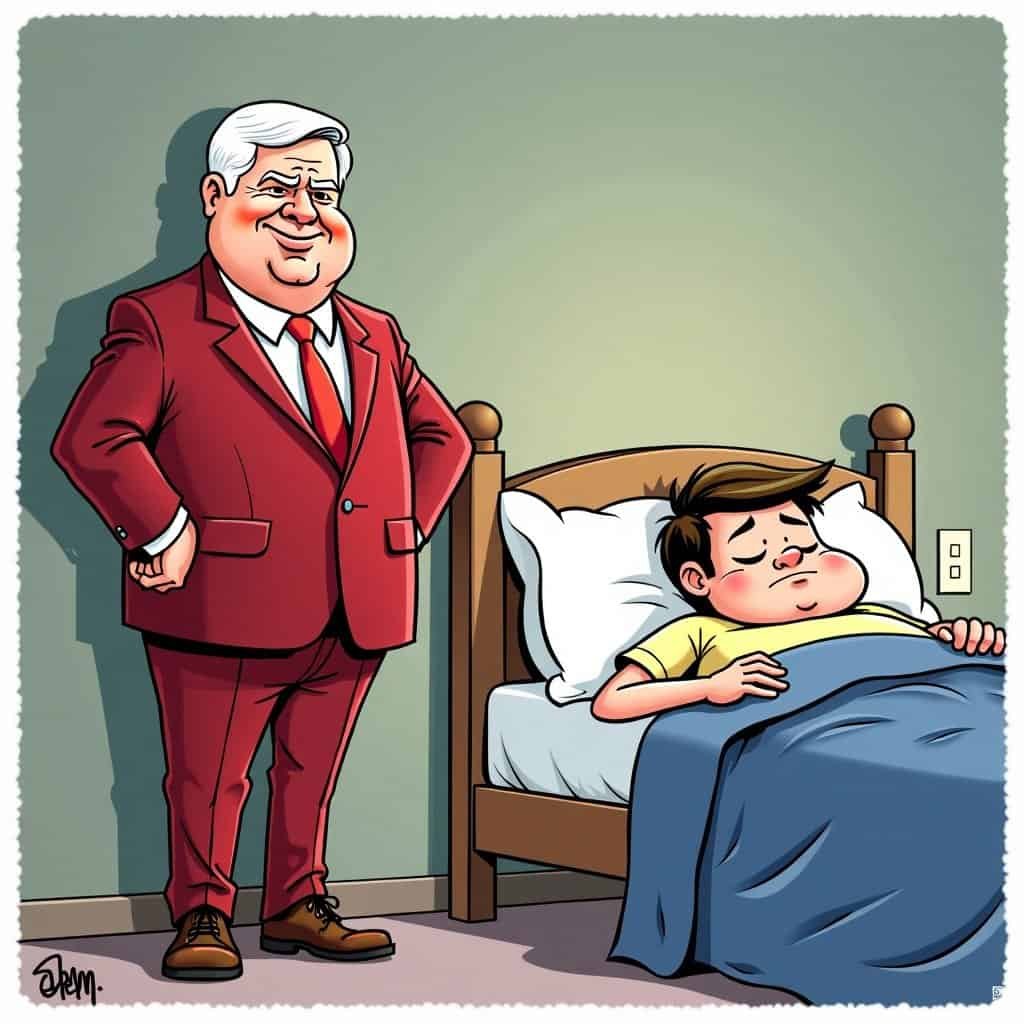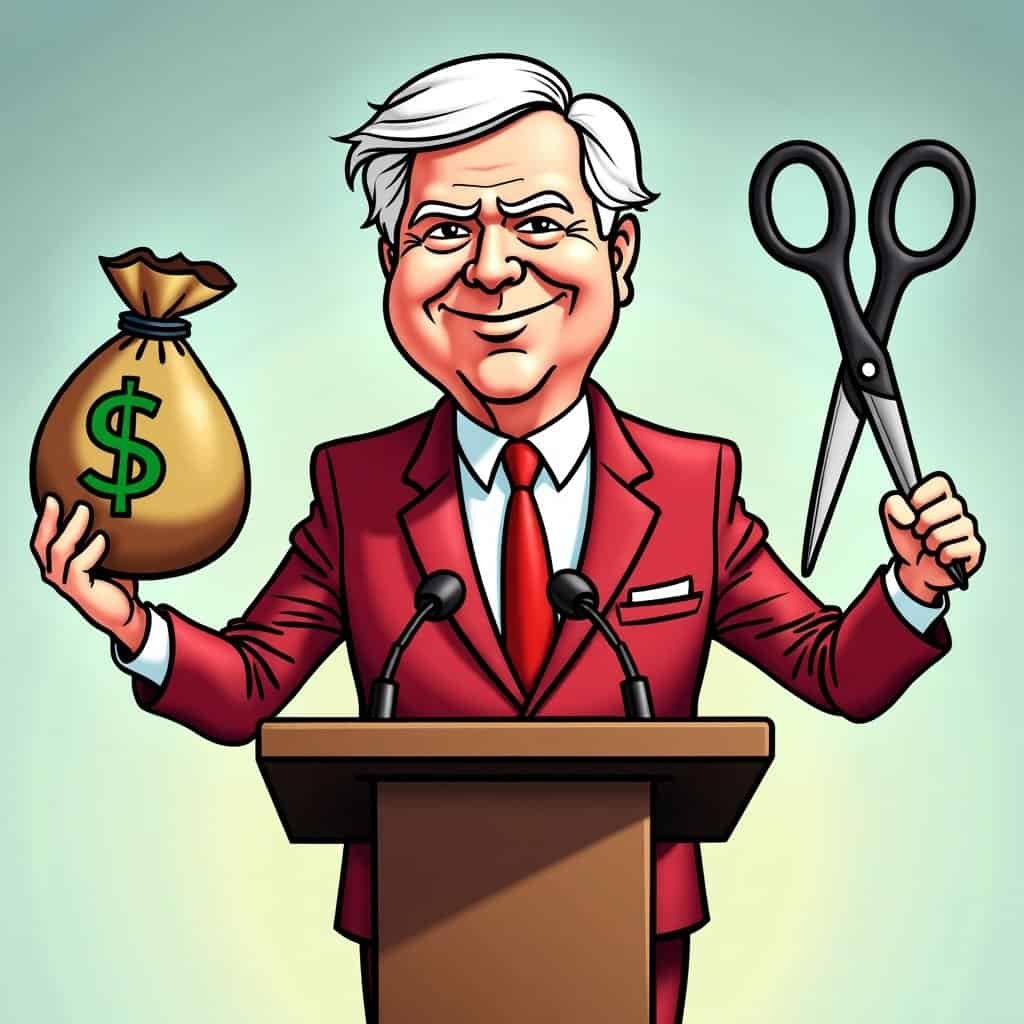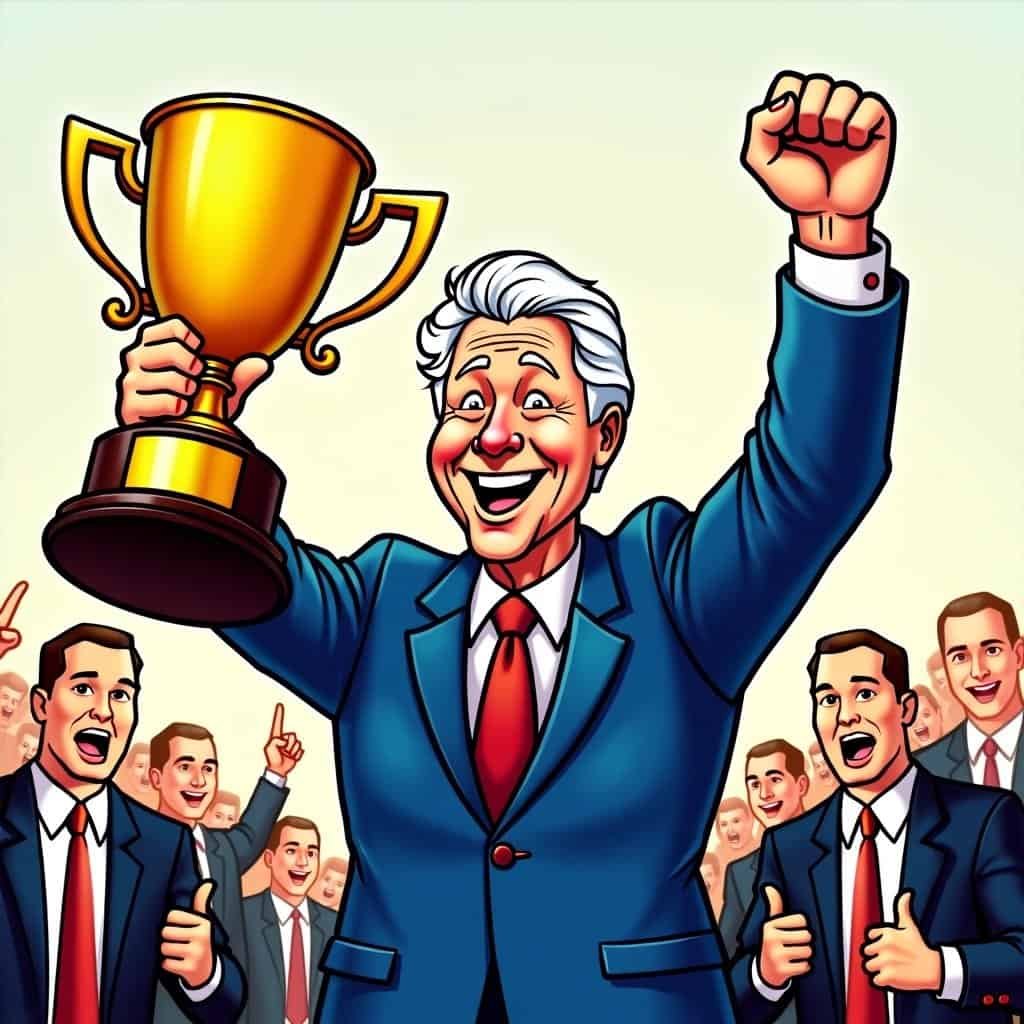Picture a world where the government’s role in our finances was like that polite party guest – visible but not overbearing. Enter Newt Gingrich, a political wizard whose grand plan revolved around loosening economic rules. Known for stirring things up, Gingrich wasn’t about to let the government nitpick every cent and scrap of wealth hardworking Americans tucked away.
Gingrich wasn’t satisfied with free market capitalism being just a high school sweetheart that never quite made it in the real world. No way! He grabbed those conservative economic ideals and ran with them like they’d promised him a superhero cape – pushing for a hands-off approach that would make the economy shine brighter than Times Square on New Year’s Eve. His ideas were nothing short of epic, a dreamy vision through rose-colored glasses – what some might call ‘hands-off’ capitalism.
Gingrich’s Vision: A Free-Market Utopia
The former Speaker of the House saw America as a well-tuned engine running smoothest when free from excessive government meddling. He championed the cause and played matchmaker to deregulation like it was his calling, promising business-minded folks an economic love story for the ages. In conservative thinking, less government interference meant the economy could dance freely, swaying to the rhythm of supply and demand – all leading to new ideas, more jobs, and wealth for everyone, like a mighty tree growing from a tiny seed.
Key Points of Gingrich’s Economic Philosophy
- Minimal government intervention
- Emphasis on free-market principles
- Reduced regulations on businesses
- Lower taxes to stimulate growth
- Increased private investment
But in this grand orchestra of progress and deregulation, the Democrats often played a different song. They seemed all too ready to weigh down the economy with heavy rules, making sure not a penny slipped by unchecked – like a well-meaning but overzealous tax collector. Unlike Gingrich’s dream, this approach sometimes led to tripping over red tape and moving money around so much it forgot to make more of it. It’s like trying to build a sandcastle with all flags and no sand – looks great on paper but crumbles when the tide comes in.
The Effects of Deregulation: A Mixed Bag
On the flip side, Gingrich’s style of deregulation paved the way for a trimmer, more agile economic model, where investment was celebrated like a hometown hero, creating a cycle of growth and prosperity. It’s often mentioned in the same breath as the American Dream: free enterprise, liberty, and of course, job markets that move faster than a caffeinated squirrel.
From corporate offices to backyard cookouts, regulation-free capitalism rode high on Gingrich’s grand ideas. This wasn’t just policy – it was a work of art in motion, singing praises of lower taxes, more private money in the game, and an ever-growing playground where businesses could romp freely. Every dollar kept by folks at tax time didn’t just sit idle; it bounced back into the economy with the enthusiasm of a kid in a candy store, opening doors that were once as stuck as your grandpa’s old truck.
The Ripple Effects of Deregulation
- Increased business flexibility
- Potential for rapid economic growth
- More opportunities for entrepreneurship
- Reduced bureaucratic red tape
- Challenges in maintaining consumer protections
As Gingrich’s economic ideas echoed through the years, Republicans found a kindred spirit in his thinking. They reinforced the idea of a self-sustaining cycle and built walls against the relentless waves of government expansion, using deregulation as their rallying cry and freedom as their blueprint. Meanwhile, those on the other side of the aisle, though often meaning well, couldn’t help adding regulatory hurdles like decorations on an already overcrowded Christmas tree — one federal rule at a time.
So, folks, take a moment to appreciate Gingrich’s legacy of economic deregulation! It became the cornerstone of a booming economy, pushing prosperity to new heights, speaking to those core conservative values that still ring true today!






